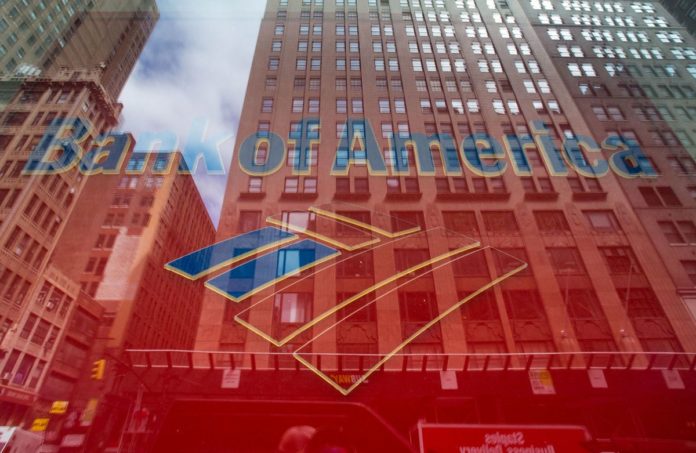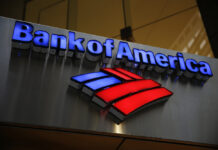
NEW YORK – Brian Moynihan’s efforts to boost Bank of America Corp. profit through cost cutting finally got some help from interest rates. The lender posted the highest net income in six years as the CEO cut expenses more than forecast and net interest income rose to the highest level since 2011 for the 2017 third quarter.
Moynihan and his executives have promised for years that the bank will boost revenue from lending whenever interest rates rise. After disappointing investors in the second quarter with a surprise drop, the bank exceeded expectations in the latest period. Net interest income, which makes up about half of the Charlotte, N.C.-based firm’s revenue, rose as the Federal Reserve has raised interest rates three times since December.
Legal Costs
During his seven years as CEO, Moynihan has worked to reduce legal costs that dogged the firm after it acquired Merrill Lynch & Co. and troubled mortgage lender Countrywide Financial Inc. The lender has spent $70 billion on legal bills since the financial crisis – more than any other United States bank – including $30 billion on mortgage putbacks.
“After $20 billion in expenses in the last five years taken out of this company, there is no team that is more focused on this than the team that works for me,” Moynihan said on a call with analysts.
Moynihan’s quest to right Bank of America drew praise this month from Berkshire Hathaway Inc.’s Warren Buffett, the firm’s largest shareholder. Buffett said in a CNBC interview that the CEO has done “a fantastic job.” Berkshire Hathaway took a $11.5 billion investment gain earlier this year when it converted preferred shares into common stock.
Total revenue rose less than 1 percent to $21.8 billion, slightly below analysts’ expectations, weighed down by a decline in mortgage-banking fees. Expenses dropped 2.5 percent to $13.1 billion, the bank said Friday in a statement, compared with estimates of $13.3 billion. The lender reduced staff by 0.5 percent from the previous quarter to 209,839.
Revenue from trading stocks and bonds declined 15 percent from a year earlier to $3.15 billion – in line with what the lender predicted last month. Fixed-income contributed the most to the slump, falling 22 percent to $2.17 billion. Equities trading, which is about half the size of fixed income, rose 2.5 percent to $984 million.
Trading of fixed-income emerging-markets products fell in the quarter and there was less activity in Asia compared with last year, Donofrio said on the analyst call.
Shares Rise
The bank’s shares rose 0.6 percent to $25.59 at 10:13 a.m. in New York. The stock has climbed 15 percent this year through Thursday, outpacing the 8.2 percent advance of the 24-company KBW Bank Index.
Net income increased 13 percent to $5.59 billion, or 48 cents a share, from $4.95 billion, or 41 cents, a year earlier, according to the statement. The average estimate of 26 analysts surveyed by Bloomberg was for per-share profit of 46 cents.
Bank of America posted $11.4 billion in net interest income, using the adjusted figure analysts tend to prefer to show fully taxable equivalence. That topped estimates of $11.35 billion.
The second-largest U.S. lender said it wrote off $900 million in soured loans during the quarter, or 1.4 percent more than a year earlier. The bulk of the bank’s bad loans are tied to U.S. credit-card users, according to the statement. Provisions for credit losses increased 15 percent from the previous quarter to $834 million.
Those results echo reserve building that JPMorgan Chase & Co. and Citigroup Inc. undertook during the quarter. Those banks boosted their reserves for consumer-loan losses by the most in more than four years.
“On balance, BAC’s results stack up better than those of peers, as credit surprised positively,” Steven Chubak, a Nomura Instinet analyst, wrote in a note to investors, referring to Bank of America’s stock ticker.
Investment-banking fees rose 1.3 percent to $1.48 billion from a year earlier, fueled by increases in revenue from advising companies. That beat analysts’ $1.31 billion estimate.
Laura J. Keller is a reporter for Bloomberg News.












